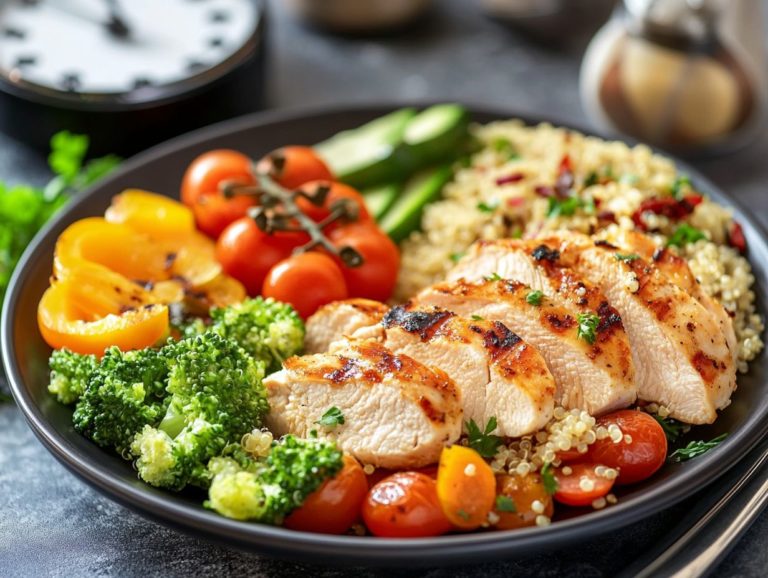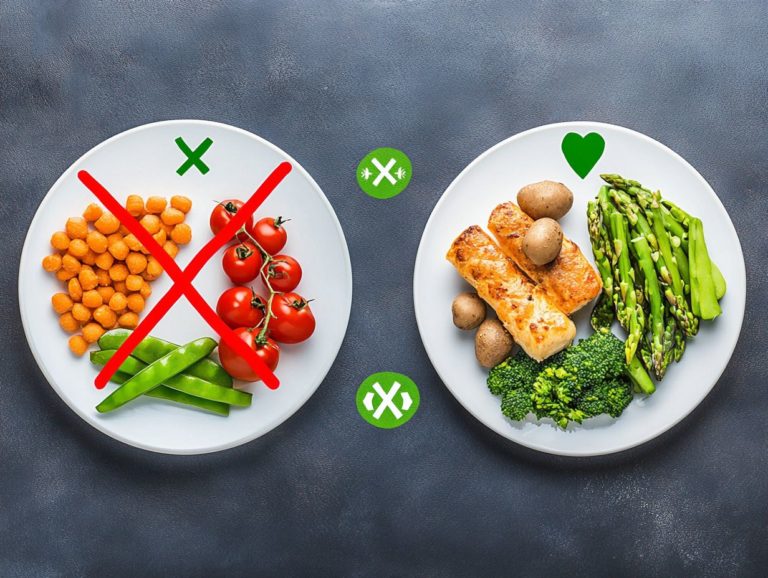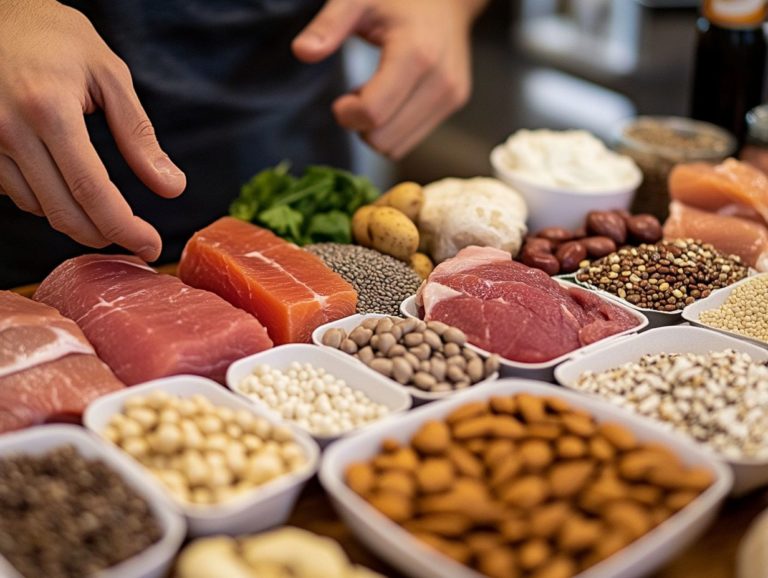The Reality of ‘Clean Eating’ Myths
Clean eating has become a popular term in health discussions. What does it really mean for you?
This article will delve into the core principles of clean eating, dispel prevalent misconceptions, and uncover the genuine benefits it offers. You’ll discover practical tips to seamlessly weave clean eating into your daily routine, while addressing the challenges and critiques that accompany this lifestyle choice.
Whether you’re embracing clean eating or just exploring it, this guide clarifies the concept. It empowers you to make informed choices about your diet.
Contents
- Key Takeaways:
- Understanding Clean Eating
- Common Myths About Clean Eating
- The Truth About Clean Eating
- Realistic Expectations and Benefits
- How to Incorporate Clean Eating into Your Diet
- Tips for a Balanced Approach
- Challenges and Criticisms of Clean Eating
- Addressing Concerns and Controversies
- Frequently Asked Questions
- What are some common myths surrounding ‘clean eating’?
- Is there a specific definition for ‘clean eating’?
- Do I have to completely eliminate all processed foods to eat clean?
- Can I still enjoy my favorite treats while following a ‘clean eating’ approach?
- Are ‘clean’ or ‘superfoods’ better than other foods?
- Is ‘clean eating’ necessary for weight loss?
Key Takeaways:
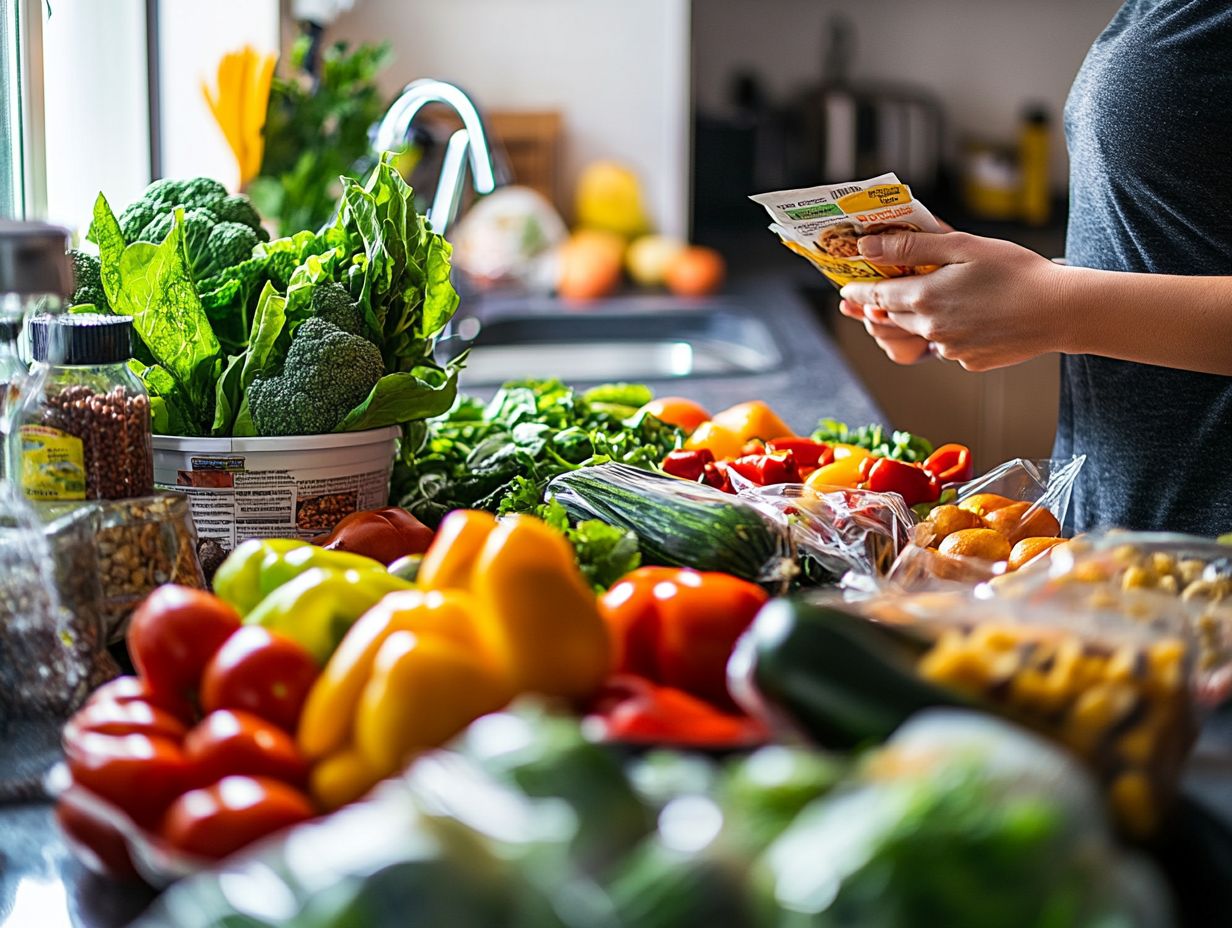
- Clean eating is not a restrictive diet, but a lifestyle that emphasizes whole, unprocessed foods and mindful eating habits.
- There are many misconceptions surrounding clean eating, such as it being expensive or only for weight loss. In reality, it can be affordable and beneficial for overall health.
- Incorporating clean eating into your diet does not have to be extreme. It’s about making small, sustainable changes and finding a balanced approach that works for you.
Understanding Clean Eating
Clean eating represents a refined dietary approach that champions the consumption of whole, minimally processed foods, all in pursuit of enhancing your overall health and well-being.
This philosophy encourages you to choose organic options, such as vibrant fruits, fresh vegetables, hearty beans, nutritious nuts, and seeds while steering clear of processed foods laden with unhealthy fats, sugars, and additives.
By embracing this lifestyle, you open the door to a host of health benefits, including elevated energy levels and a decreased risk of nutrient deficiencies, both of which are vital for maintaining your optimal health.
Defining the Concept
Clean eating is all about making thoughtful, healthy choices by opting for whole, natural foods and being mindful of portion sizes. This approach focuses on consuming unprocessed ingredients while avoiding artificial additives and refined sugars.
Unlike fleeting fad diets that often impose extreme restrictions or eliminate entire food groups, clean eating encourages you to cultivate a balanced relationship with food. By incorporating a variety of healthy options, it promotes your overall wellness, helping you maintain vitality and energy throughout the day.
Start embracing clean eating today! It fosters an awareness of the nutritional value of your food choices, guiding you toward items that positively fuel your body, such as lean proteins, whole grains, fruits, and vegetables.
Ultimately, this mindful approach supports long-term health benefits that you can feel good about.
Common Myths About Clean Eating
Despite its widespread appeal, clean eating is frequently clouded by misconceptions that can lead you astray on your path to better health.
Debunking Misconceptions

One of the most common misconceptions is that clean eating bans all processed foods and unhealthy snacks, which isn t entirely accurate.
The definition of clean eating is much more nuanced. Many assume that any processed food is automatically bad, overlooking the fact that some products can be crafted from wholesome ingredients.
It s crucial to recognize that healthy choices can include minimally processed items as part of a balanced diet. The key is moderation, allowing for the occasional indulgence while focusing on nutrient-rich foods.
By adopting this flexible approach, you can savor a variety of flavors and textures, cultivating a sustainable relationship with food that emphasizes both well-being and enjoyment.
The Truth About Clean Eating
The essence of clean eating is rooted in grasping realistic expectations and recognizing the significant health benefits it can offer when seamlessly integrated into your daily routine.
Embracing this approach with intention can lead to transformative results, enhancing your overall well-being and vitality.
Realistic Expectations and Benefits
When you embrace clean eating, expect gradual weight loss instead of instant results. This approach focuses on sustainable dietary changes that boost your overall health.
By avoiding extreme diets, you ll find that consistency and mindful choices lead to a healthier lifestyle. While the temptation for quick fixes may be strong, the journey thrives on these principles.
You ll be amazed to discover that poor eating habits can lead to deficiencies in essential vitamins and minerals, like iron and vitamin D. Clean eating fills your diet with a variety of whole foods fruits, vegetables, whole grains, and lean proteins giving your body the nutrients it needs to truly thrive.
How to Incorporate Clean Eating into Your Diet
Incorporating clean eating into your diet requires a strategic approach. This means planning your meals carefully, choosing foods rich in vitamins and minerals, and mastering healthy snacking.
With some foresight and intention, you can elevate your diet and nourish your body in the best way possible.
Tips for a Balanced Approach

To maintain a balanced approach to clean eating, pay attention to portion sizes and include elements from the Mediterranean diet, known for its many health benefits.
This dietary approach focuses not just on the quality of food but also on moderation. You’ll learn to recognize appropriate serving sizes and avoid the common traps of overeating.
By filling your plate with colorful fruits, leafy greens, and whole grains, you can create a meal that delights your taste buds while meeting your nutritional needs.
Healthy fats from sources like olive oil and nuts enhance flavor and promote heart health.
Embracing these principles encourages mindful eating, allowing you to savor meals without guilt. This shift leads to sustainable health benefits and a more enjoyable relationship with food.
Challenges and Criticisms of Clean Eating
While clean eating has many benefits, it also presents challenges and criticisms.
You may find that the focus on restrictions can feel limiting at times, especially when unhealthy snacks tempt you with their allure.
Addressing Concerns and Controversies
To address concerns surrounding clean eating, it’s important to understand its stance on gluten-containing grains and processed foods, which can confuse consumers.
You may feel caught between the desire for healthful choices and the often conflicting advice that bombards you every day.
Clean eating advocates typically promote whole, unprocessed foods while suggesting that gluten-containing grains and processed items should be avoided due to potential health impacts.
However, not all processed foods are created equal, and gluten isn t inherently harmful for everyone.
By emphasizing balance and moderation, you can navigate these complexities, paving the way for a more personalized and sustainable diet. Consulting with a nutrition expert can also help you make informed choices that truly align with your health goals.
Frequently Asked Questions
What are some common myths surrounding ‘clean eating’?
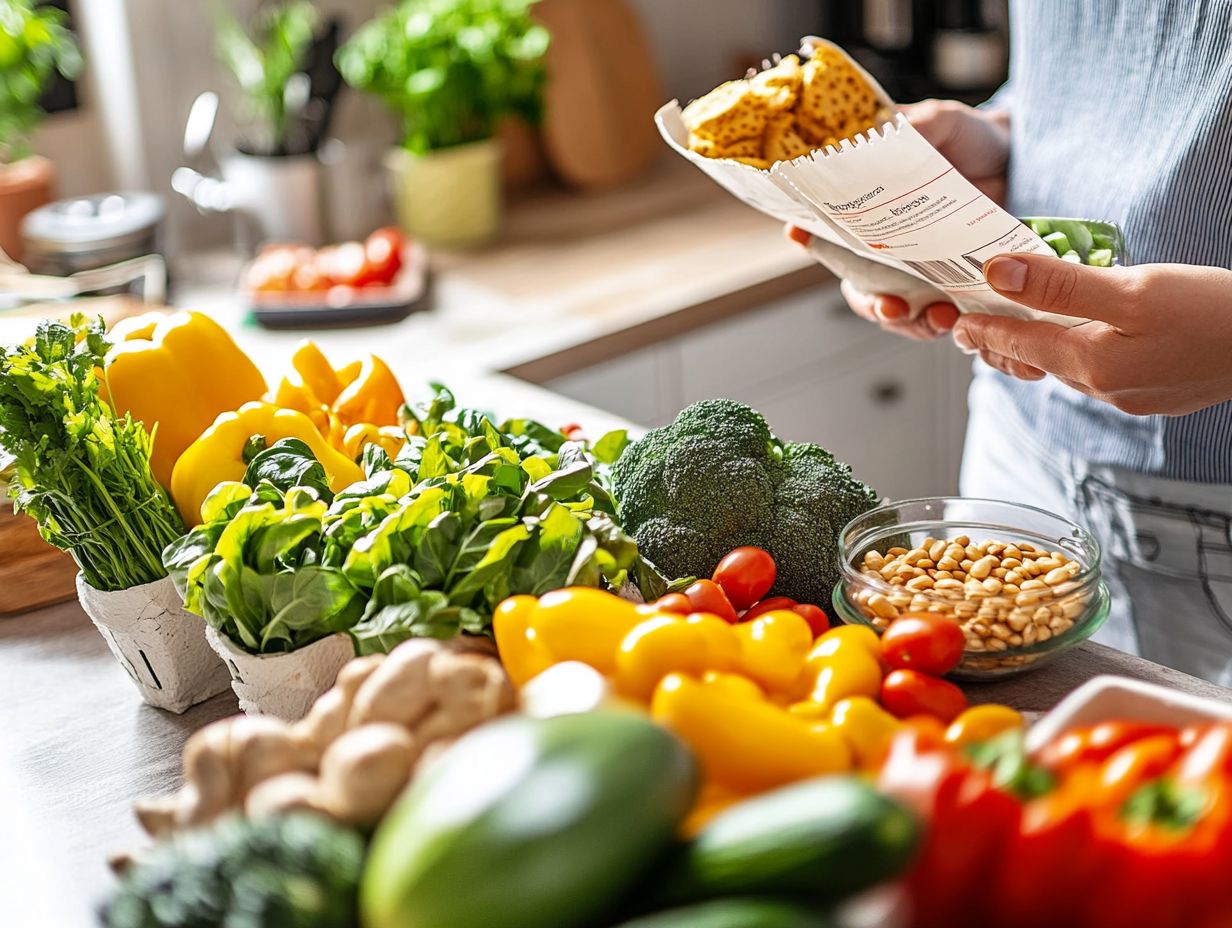
Some common myths include the belief that all processed foods are unhealthy, that you must restrict certain food groups for a healthy diet, and that ‘clean’ or ‘superfoods’ have magical health benefits.
Is there a specific definition for ‘clean eating’?
No, there is no specific, universally agreed-upon definition for ‘clean eating’. The term can mean different things to different people and is often subjective.
Do I have to completely eliminate all processed foods to eat clean?
No, it is not necessary to completely eliminate all processed foods to eat clean. It is more important to focus on consuming a variety of whole foods and limiting highly processed items.
Can I still enjoy my favorite treats while following a ‘clean eating’ approach?
Yes, you can enjoy your favorite treats while eating clean. It s all about balance and moderation. Feel free to indulge occasionally as part of a healthy diet.
Are ‘clean’ or ‘superfoods’ better than other foods?
No, there s no scientific proof that ‘clean’ or ‘superfoods’ are better than other options. All whole, unprocessed foods provide essential nutrients and support a healthy diet.
Is ‘clean eating’ necessary for weight loss?
Clean eating is popular for weight loss, but it s not necessary. Weight loss happens when you burn more calories than you consume, which can be done in many ways.

